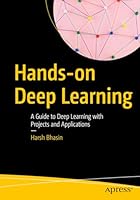
Adaptive Design Theory and Implementation Using SAS and R, 2nd Edition
- Length: 706 pages
- Edition: 2
- Language: English
- Publisher: Chapman and Hall/CRC
- Publication Date: 2014-12-03
- ISBN-10: 1482256592
- ISBN-13: 9781482256598
- Sales Rank: #2220495 (See Top 100 Books)
Get Up to Speed on Many Types of Adaptive Designs
Since the publication of the first edition, there have been remarkable advances in the methodology and application of adaptive trials. Incorporating many of these new developments, Adaptive Design Theory and Implementation Using SAS and R, Second Edition offers a detailed framework to understand the use of various adaptive design methods in clinical trials.
New to the Second Edition
- Twelve new chapters covering blinded and semi-blinded sample size reestimation design, pick-the-winners design, biomarker-informed adaptive design, Bayesian designs, adaptive multiregional trial design, SAS and R for group sequential design, and much more
- More analytical methods for K-stage adaptive designs, multiple-endpoint adaptive design, survival modeling, and adaptive treatment switching
- New material on sequential parallel designs with rerandomization and the skeleton approach in adaptive dose-escalation trials
- Twenty new SAS macros and R functions
- Enhanced end-of-chapter problems that give readers hands-on practice addressing issues encountered in designing real-life adaptive trials
Covering even more adaptive designs, this book provides biostatisticians, clinical scientists, and regulatory reviewers with up-to-date details on this innovative area in pharmaceutical research and development. Practitioners will be able to improve the efficiency of their trial design, thereby reducing the time and cost of drug development.
Table of Contents
Chapter 1 – Introduction
Chapter 2 – Classical Design
Chapter 3 – Theory of Hypothesis-Based Adaptive Design
Chapter 4 – Method with Direct Combination of p-values
Chapter 5 – Method with Inverse-Normal p-values
Chapter 6 – Adaptive Noninferiority Design with Paired Binary Data
Chapter 7 – Adaptive Design with Incomplete Paired Data
Chapter 8 – K-Stage Adaptive Designs
Chapter 9 – Conditional Error Function Method and Conditional Power
Chapter 10 – Recursive Adaptive Design
Chapter 11 – Unblinded Sample-Size Reestimation Design
Chapter 12 – Blinded and Semi-Blinded Sample-Size Reestimation Design
Chapter 13 – Adaptive Design with Coprimary Endpoints
Chapter 14 – Multiple-Endpoint Adaptive Design
Chapter 15 – Pick-the-Winners Design
Chapter 16 – The Add-Arm Design for Unimodal Response
Chapter 17 – Biomarker-Enrichment Design
Chapter 18 – Biomarker-Informed Adaptive Design
Chapter 19 – Survival Modeling and Adaptive Treatment Switching
Chapter 20 – Response-Adaptive Allocation Design
Chapter 21 – Introductory Bayesian Approach in Clinical Trial
Chapter 22 – Adaptive Dose-Escalation Trial
Chapter 23 – Bayesian Design for Efficacy–Toxicity Trade-O and Drug Combination
Chapter 24 – Bayesian Approach to Biosimilarity Trial
Chapter 25 – Adaptive Multiregional Trial Design
Chapter 26 – SAS and R Modules for Group Sequential Design
Chapter 27 – Data Analysis of Adaptive Trial
Chapter 28 – Planning, Execution, Analysis, and Reporting
Chapter 29 – Debates in Adaptive Designs
Appendix A – Random Number Generation
Appendix B – A Useful Utility
Appendix C – SAS Macros for Add-Arm Designs
Appendix D – Implementing Adaptive Designs in R







